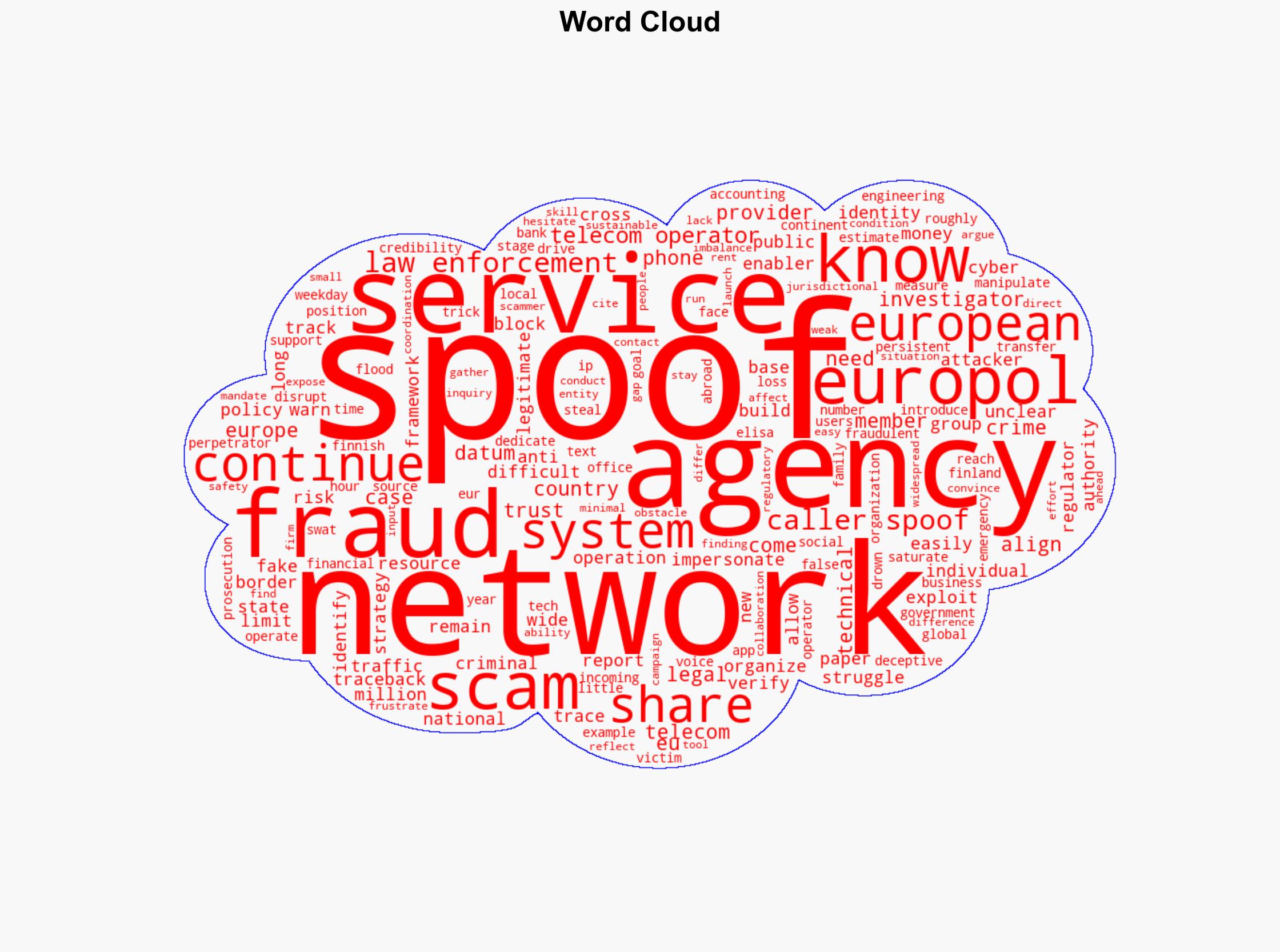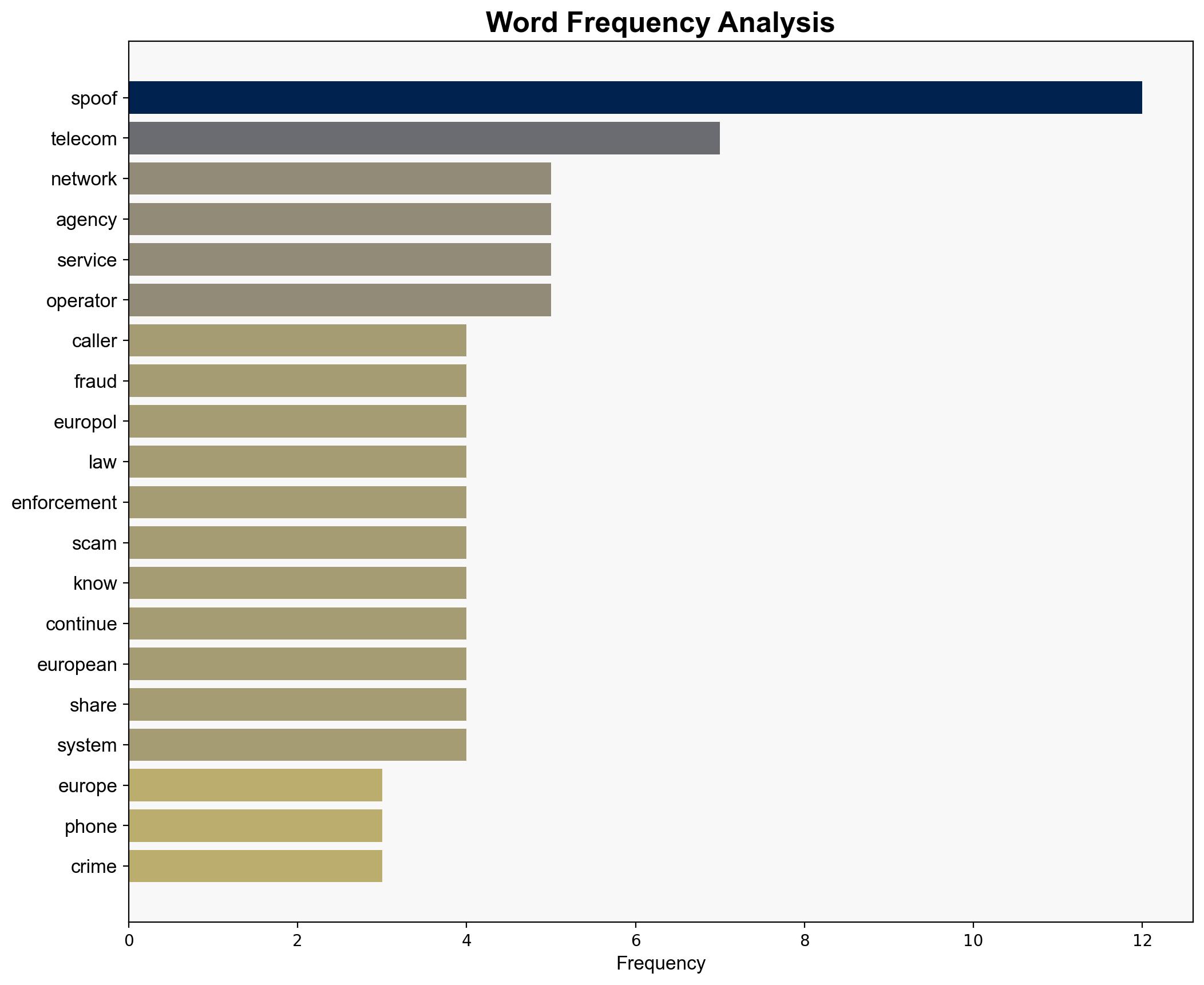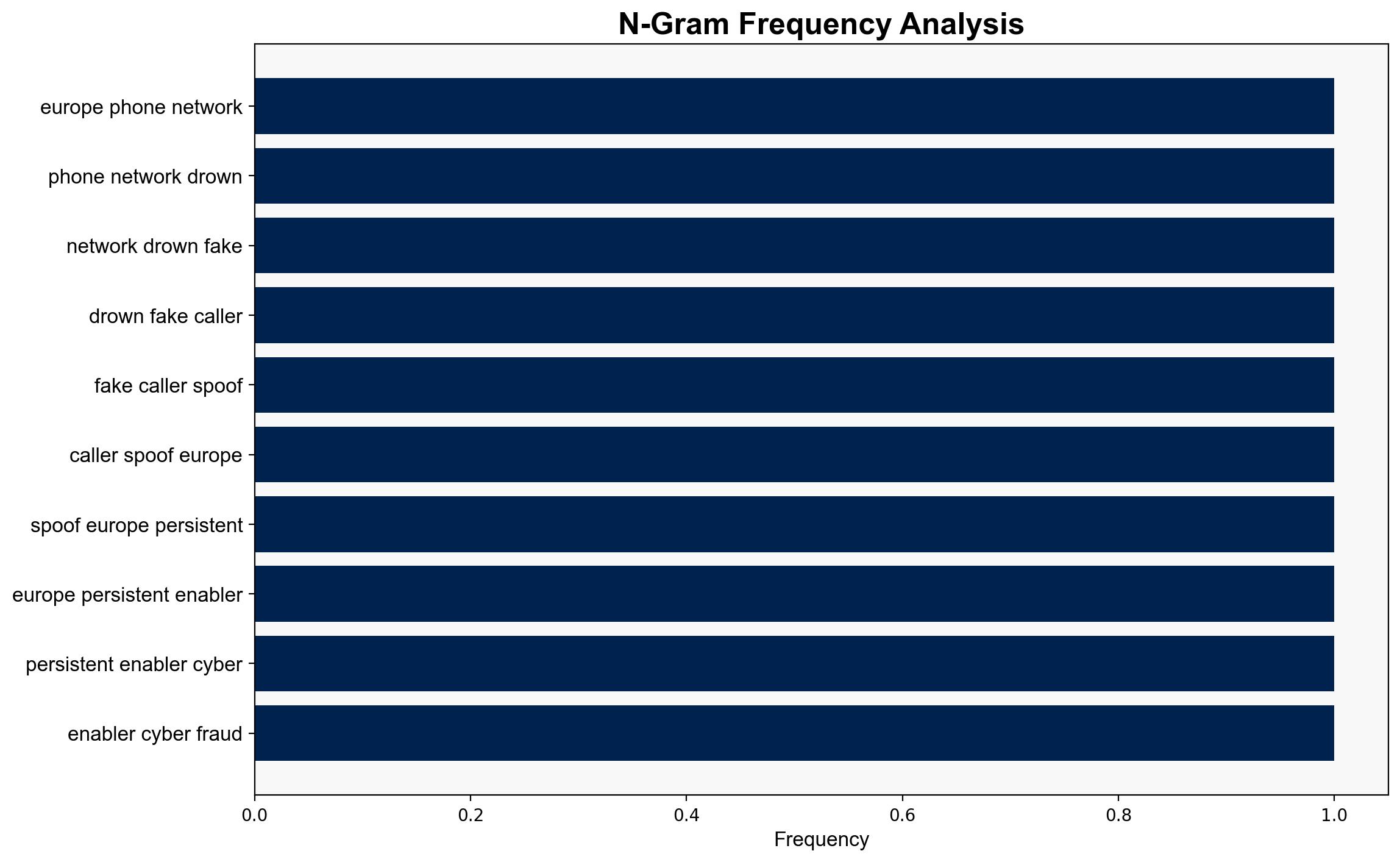Europes phone networks are drowning in fake calls – Help Net Security
Published on: 2025-11-03
Intelligence Report: Europes phone networks are drowning in fake calls – Help Net Security
1. BLUF (Bottom Line Up Front)
The most supported hypothesis is that the increase in fake calls in Europe is primarily driven by organized cybercriminal groups exploiting regulatory and technical gaps across national jurisdictions. Confidence level: Moderate. Recommended action includes enhancing cross-border cooperation and establishing unified technical standards to mitigate this threat.
2. Competing Hypotheses
Hypothesis 1: The surge in fake calls is primarily due to organized cybercriminal groups exploiting weak regulatory frameworks and technical vulnerabilities in Europe’s telecommunications networks.
Hypothesis 2: The increase in fake calls is largely driven by individual actors or small groups using easily accessible spoofing tools, with limited coordination or organization.
Using Analysis of Competing Hypotheses (ACH), Hypothesis 1 is better supported by the evidence. The report highlights the cross-border nature of these crimes, the use of sophisticated spoofing techniques, and the challenges faced by law enforcement due to jurisdictional differences, all indicative of organized criminal activity.
3. Key Assumptions and Red Flags
Assumptions:
– Cross-border coordination among criminals is assumed to be high.
– Regulatory and technical gaps are significant and widespread.
Red Flags:
– Lack of detailed data on the specific actors involved.
– Potential underestimation of individual actors’ capabilities.
– Inconsistent reporting and data sharing among EU member states.
4. Implications and Strategic Risks
The persistent threat of fake calls poses significant risks to financial institutions, public safety, and trust in communication systems. Economically, the fraud could lead to substantial financial losses. Psychologically, it may erode public trust in legitimate communications from banks and government agencies. Geopolitically, the lack of coordinated response could strain relations within the EU.
5. Recommendations and Outlook
- Enhance EU-wide coordination and establish a unified regulatory framework to address spoofing and related cyber threats.
- Develop and implement technical standards for caller ID verification and traceback systems.
- Scenario Projections:
- Best Case: Successful implementation of EU-wide standards reduces fake call incidents significantly.
- Worst Case: Continued fragmentation leads to increased fraud and public distrust.
- Most Likely: Gradual improvement as member states align efforts, but challenges persist due to slow regulatory changes.
6. Key Individuals and Entities
– Europol
– Elisa (Finnish telecom operator)
7. Thematic Tags
national security threats, cybersecurity, counter-terrorism, regional focus




